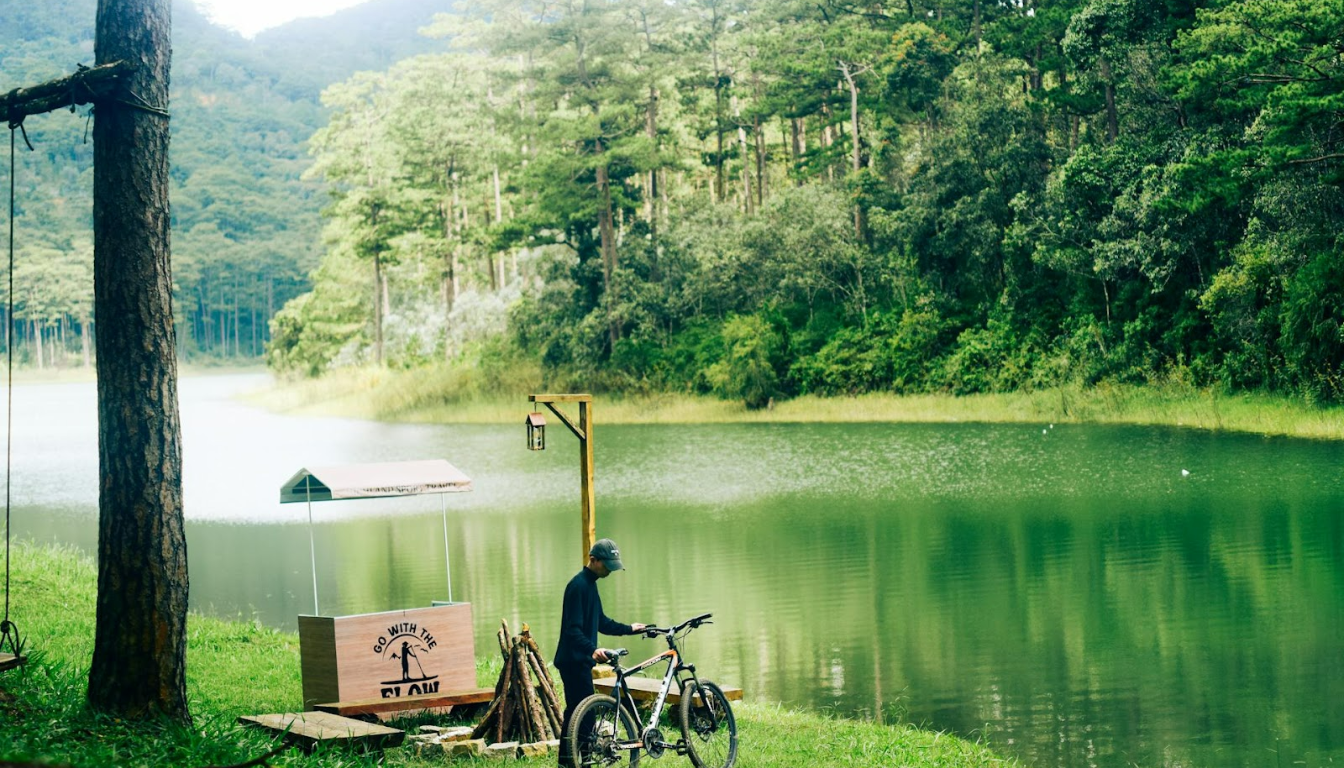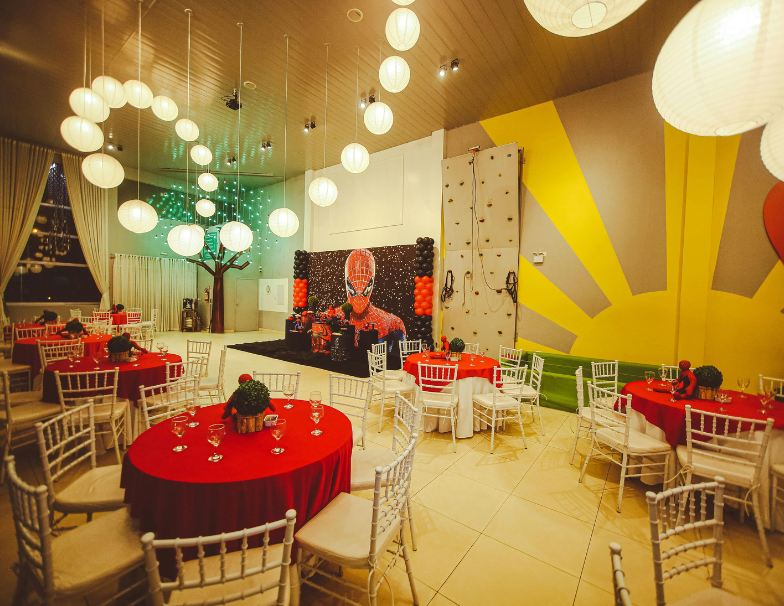Leadership Retreats: How to Plan and Maximize Your Team’s Potential

A leadership retreat is a planned break from daily business operations, designed to help leadership teams focus on strategic planning, team building, and personal development in a relaxed setting. By stepping away, leaders can recharge, improve communication, and align on future goals. Choosing the right leadership retreat activities is essential for creating an engaging and productive experience that strengthens team cohesion and drives organizational success.
This guide provides everything you need to plan an effective executive offsite, from understanding core objectives to selecting the best activities, venues, and planning strategies that will elevate your team's performance.
Key Takeaways
- Leadership retreats blend strategic work with relationship building through carefully selected activities that promote team cohesion, personal development, and organizational alignment
- Successful offsites balance structured planning sessions (40-50%), team building activities for leadership retreat (30-40%), and wellness time (10-20%) to maximize engagement and outcomes
- Incorporating diverse team building activities for leadership retreat—from outdoor adventures to creative workshops—enhances problem-solving skills, communication, and emotional intelligence
- Choosing venues that support both focused strategic work and engaging group activities ensures productive discussions while fostering stronger interpersonal connections
- Comprehensive planning 3-6 months in advance, including clear objectives and diverse activity selection, leads to retreats that deliver measurable improvements in team performance
Understanding Leader Retreats

Leadership retreats are designed to blend work and play, providing an environment where leaders can step back from their day-to-day responsibilities and focus on team building and professional development. These offsites enable leadership teams to look at the broader picture, develop strategies, and enhance their leadership skills. Engaging in innovative activities enhances leaders' problem-solving and communication skills, essential for fostering high-functioning teams.
Executive offsites are essential for improving interpersonal relationships among team members, significantly boosting overall team cohesion. These gatherings allow leadership team members to align on goals, build connections, and develop strategies for future success. Engaging in specialized leadership group activities can also enhance emotional intelligence, creating a more motivated and aligned leadership team.
Purpose and Benefits of Leader Retreats
The primary purposes of these offsites are to facilitate growth, foster stronger relationships, ensure strategic alignment, and support personal development. Leadership retreats provide time for leaders to focus on development and team cohesion, away from the daily operations of the business.
Leader retreats build trust, enhance communication, and develop authentic relationships among team members. They encourage creative thinking, align the team with the organization's vision, and foster team bonding through diverse activities. Celebrating past successes during an offsite helps encourage and motivate the team, making these strategic investments in the company's success.
Essential Components of a Successful Leader Retreat

A successful leader retreat requires a well-balanced mix of structured time, creativity, rest, and opportunities for deep connection. Senior leaders setting clear goals ensures that activities align with the needs and expectations of the team. Common components include strategic planning sessions, leadership development workshops, team building exercises, and wellness activities.
Strategic planning sessions are designed to review key performance indicators (KPIs), set future goals, and ensure team alignment. Leadership development workshops focus on enhancing critical skills such as decision-making, conflict resolution, and communication. Team building activities promote teamwork and enhance camaraderie among leadership team members through collaborative experiences.
Wellness and recharge time is essential, allowing leaders to reduce stress through activities like yoga, nature walks, or simply unplugging from work. These wellness sessions improve mental clarity and overall productivity among participants.
Choosing the Ideal Location for Your Leader Retreat

Choosing the right venue for a leadership retreat is essential as it sets the tone for the entire experience. The right venue can significantly enhance teamwork and creativity. Factors to consider include the venue's atmosphere, accessibility, and amenities to ensure it meets the needs of your leadership team.
When selecting a location, consider accessibility, ideally close to transportation hubs. Quality on-site amenities like restaurants and Wi-Fi are crucial for success. Venues should provide a distraction-free environment ensuring that leadership team members can focus on strategic discussions and team-building activities without interruptions.
Mountain venues are ideal for focused discussions and deep thinking, offering a serene environment that promotes reflection and strategic planning. Beachfront locations are excellent for creative thinking and informal networking, providing a relaxed atmosphere that fosters innovation. Urban venues can offer a mix of productivity and entertainment, making them suitable for networking and team-building activities.
15 Leadership Retreat Activities to Elevate Team Performance

Innovative leader retreat ideas can transform a standard retreat into an unforgettable experience. These ideas foster a culture of innovation and creativity among leadership teams. Incorporating purpose-driven challenges and activities can enhance team collaboration and align with the organization’s values.
Building a leadership manifesto, inspirational speakers, and expert-led masterclasses are just a few examples of innovative ideas that can make your next leadership retreat a success, as shared by industry leaders. These leadership retreat ideas can truly enhance the experience.
Selecting the right leadership retreat activities is critical for creating an engaging and transformative experience. The best activities combine strategic thinking, team bonding, creativity, and wellness to address multiple objectives simultaneously. Below are 15 proven leadership activities examples organized by category.
Outdoor and Adventure Activities
1. Guided Nature Hike with Strategic Discussion Combine physical activity with strategic planning by conducting walking meetings on scenic trails. The change of environment stimulates creative thinking while physical movement enhances focus and energy. Leaders discuss key business challenges while hiking, with scheduled stops for deeper conversation.
2. Kayaking or Ropes Course Challenge Water-based activities or high-element courses require coordination, communication, and trust. Teams navigate challenges together, learning to synchronize their efforts and support each other. This builds resilience and demonstrates how individual contributions affect collective outcomes.
3. Beach Cleanup or Trail Maintenance Environmental service projects combine community engagement with teamwork. Leaders work together toward a common goal while contributing to environmental stewardship, reinforcing organizational values around social responsibility.
Creative and Artistic Activities
4. Collaborative Art Project Teams create a large-scale art piece together, such as a mural representing the organization's vision. This encourages creative expression, symbolism, and collaboration while producing a tangible reminder of the experience.
5. Improv Comedy Workshop Improvisation exercises develop quick thinking, active listening, and adaptability. Leaders practice "yes, and" thinking, learning to build on others' ideas rather than blocking them—a skill directly applicable to workplace collaboration.
6. Storytelling Circle Structured storytelling sessions where leaders share personal narratives about leadership challenges, failures, and successes. This vulnerable sharing builds empathy, reveals common experiences, and strengthens interpersonal connections.
Culinary and Experiential Activities
7. Chef-Led Cooking Challenge Teams compete in a cooking competition with professional chef guidance, combining creativity, time management, and collaboration. The shared meal afterward provides informal conversation time and celebration of collective achievement.
8. Wine or Whiskey Tasting with Expert Guided tastings led by sommeliers or distillers offer sophisticated team building. Leaders learn together, discuss preferences, and engage in conversations that reveal personality and build rapport in a relaxed setting.
9. Farm-to-Table Experience Visit a local farm, harvest ingredients, and prepare a meal together. This hands-on experience connects leaders to sustainable practices while emphasizing the journey from raw materials to finished product—a powerful business metaphor.
Strategic and Problem-Solving Activities
10. Escape Room Challenge Teams work against the clock to solve puzzles and escape a themed room. This high-pressure activity reveals leadership styles, communication patterns, and problem-solving approaches while being highly engaging.
11. Business Simulation Game Participate in a structured business simulation where teams make strategic decisions and see immediate consequences. These simulations compress months of business operations into hours, revealing decision-making patterns and strategic thinking abilities.
12. Innovation Workshop with Design Thinking Facilitate a design thinking session tackling a real business challenge. Teams move through empathy, ideation, prototyping, and testing phases, learning structured innovation processes while generating actionable ideas.
Wellness and Mindfulness Activities
13. Group Yoga or Tai Chi Session Professional-led movement practices that reduce stress, improve focus, and create shared wellness experiences. Morning or sunset sessions are particularly powerful for setting intention or reflecting on the day.
14. Guided Meditation and Mindfulness Training Learn practical mindfulness techniques for stress management and improved focus. These sessions provide tools leaders can use daily, emphasizing self-care as essential for sustainable leadership.
15. Spa Day or Wellness Workshop Structured wellness time including massages or wellness education sessions. This dedicated self-care time communicates that the organization values leader wellbeing, resulting in recharged and motivated participants.
Unique Excursion Activities
Hot Air Balloon Ride: Experience breathtaking views and the metaphor of rising above daily challenges. The quiet, awe-inspiring experience creates memorable bonding moments and often sparks reflective conversations about perspective and vision.
Boat Tour or Sunset Cruise: Waterfront excursions combine relaxation with team connection. Whether a harbor tour, coastal cruise, or lake excursion, the unique setting removes typical meeting constraints and encourages informal relationship building.
Winery or Brewery Tour: Learn about craft processes while enjoying tastings in a relaxed setting. The behind-the-scenes view of another business operation often sparks discussions about quality, process, and customer experience.
Selecting Activities for Your Leadership Retreat
When choosing activities, consider your team's physical abilities, personality mix, and comfort with different activity types. Balance high-energy activities with reflective ones, competitive elements with collaborative ones, and outdoor options with indoor alternatives in case of weather changes.
The most effective offsites include 4-6 different activity types across the duration, ensuring variety while avoiding overscheduling. Allow 15-20% of the schedule for unstructured time where leaders can continue conversations, rest, or pursue individual interests.
Enhancing Leadership Skills Through Retreats

Executive offsites provide opportunities for leaders to focus on personal and professional development, leading to increased productivity and improved team dynamics. Activities such as team discussions, improvisation games, and storytelling help leaders connect on an emotional level with their teams, promoting a shared vision and enhancing leadership skills.
Decision-making workshops enhance decision-making skills among leadership team members through sharing personal leadership stories and goal-setting activities. Emotional intelligence training helps team leaders manage their emotions and improve work performance by developing skills such as empathy and active listening. Problem-solving exercises engage leaders in collaborative discussions to address specific business challenges, fostering diverse perspectives and enhancing critical thinking.
Leveraging Technology in Leader Retreats
Integrating technology into executive offsites transforms them into engaging and productive experiences. Virtual collaboration tools facilitate remote participation and encourage creativity within leadership team members, helping keep sessions engaging and productive through real-time collaboration platforms.
Digital brainstorming platforms enhance idea generation and foster collaboration among team members, providing templates and tools for interactive collaboration. By streamlining the strategic planning process, these platforms allow for more effective decision-making and strategic thinking.
Incorporating Community Engagement
Community service projects foster social responsibility and teamwork. Engaging in community service during offsites strengthens bonds among team members and boosts morale. Local volunteer opportunities like food drives and habitat restoration allow teams to engage in meaningful activities that benefit their community.
Partnering with local businesses provides unique learning opportunities while strengthening community ties. These collaborations offer unique insights and experiences for participants, enhancing their understanding of local business practices and challenges.
Summary
Leadership retreats are valuable opportunities for building stronger connections, fostering innovation, and developing strategic visions. The right mix of leadership retreat activities—from outdoor adventures and creative workshops to strategic planning sessions and wellness experiences—creates transformative experiences that enhance team performance and organizational alignment.
The 15 leadership activities examples presented offer diverse options for team building, skill development, and relationship strengthening, ensuring your offsite addresses multiple objectives. By balancing structured work sessions with engaging activities, incorporating wellness time, and leveraging technology where appropriate, organizations can create memorable and impactful experiences.
Take the first step towards planning your next executive offsite by defining clear objectives, selecting activities that align with your team's needs, and choosing a venue that supports both focused work and meaningful connection.
FAQs
- What is the main purpose of leadership retreats?
The main purpose of leadership retreats is to foster team building, enhance connections, and promote professional development through a blend of strategic work and engaging leadership retreat activities. These gatherings create an environment conducive to collaboration, innovation, and personal growth while strengthening organizational alignment.
- What are the best team building activities for leadership retreats?
The best activities include outdoor adventures (hiking, kayaking, ropes courses), creative workshops (improv, collaborative art, storytelling), culinary experiences (cooking challenges, wine tastings), strategic exercises (escape rooms, business simulations), and wellness sessions (yoga, meditation). Select 4-6 diverse activities that match your team's preferences and objectives for maximum engagement.
- How many leadership retreat activities should we include in a 2-3 day retreat?
For a 2-day offsite, plan 4-6 main activities plus 2-3 wellness or informal activities. For a 3-day offsite, include 6-8 main activities with additional wellness sessions. Balance high-energy activities with reflective ones, and leave 15-20% of the schedule unstructured for organic conversation and rest.
- What are some unique leadership group activities that go beyond traditional team building?
Unique leadership group activities include hot air balloon rides, boat tours or sunset cruises, farm-to-table experiences, cultural immersion dinners, design thinking innovation workshops, and community service projects with local organizations. These leadership activities examples create memorable experiences while developing specific skills like creative thinking, cultural awareness, and social responsibility.
You may also like
Unique spaces for your next offsite
Find distinctive venues for your upcoming corporate retreat.
Stay Updated with Our Insights
Get exclusive content and valuable updates directly to you.







